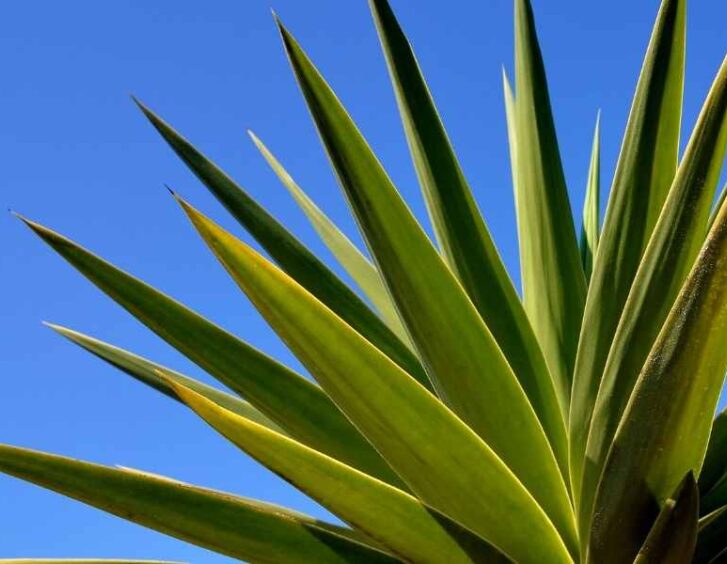When it comes to agave for spirit production, you'll find a variety of options, each with its own unique characteristics. Blue Agave, known for tequila, thrives in dry, well-drained soil and matures in 7-8 years. Espadin, essential for mezcal, offers earthy to fruity flavors after 7-10 years of growth. Tobala stands out for its complex taste and requires expert handling during production. Madre Cuixe brings herbal and earthy notes to mezcal, while Arroqueno offers intense flavors from diverse regions. Karwinskii, sought after for mezcal, presents a balance of sweet, savory, and citrus notes, adding depth to spirits.
Exploring these agave types can help you understand the diverse world of spirit production.
Key Takeaways
- Blue Agave (Tequilana Weber) is popular for tequila due to high sugar content and arid climate adaptability.
- Espadin agave offers traditional mezcal characteristics with maturation taking 7-10 years for varied flavor profiles.
- Tobala agave is prized in mezcal for complex tastes, requiring a longer maturation period.
- Madre Cuixe agave is known for unique earthy and herbal notes, roasted in underground ovens for preservation.
- Karwinskii agave is favored in mezcal production for its adaptability and distinctive sweet, savory, citrus, and spicy flavors.
Blue Agave
If you're searching for a versatile and popular variety of agave, Blue Agave is the ideal choice. Cultivation practices for Blue Agave are vital to guarantee a successful harvest. This type of agave thrives in rich, sandy soils with good drainage and plenty of sunlight. When planting Blue Agave, make sure to space the plants adequately to allow them room to grow. Regular watering is important, especially during the first year of growth. However, be cautious not to overwater, as this can lead to root rot.
Blue Agave offers a unique flavor profile that sets it apart from other agave varieties. The plant's high sugar content contributes to its sweet taste, making it a popular choice for producing tequila. Blue Agave tequila is known for its smooth, slightly citrusy flavor with hints of vanilla and spice. This distinct taste makes Blue Agave a favorite among tequila enthusiasts worldwide.
Espadin
Blue Agave is renowned for its unique flavor profile, and similarly, Espadin offers its own distinctive characteristics in the world of agave varieties. When it comes to traditional mezcal production, Espadin holds a special place. This type of agave is commonly used in mezcal-making due to its adaptability and abundance, making it a staple in the world of mezcal production.
Espadin agave plants are known for their relatively short maturation period compared to other agave varieties, typically taking around 7 to 10 years to reach maturity. Once harvested, the piñas, or hearts, of the Espadin agave are roasted in underground pit ovens to create mezcal. This process gives Espadin mezcal its unique flavor profiles, which can range from earthy and vegetal to fruity and slightly sweet, depending on the production techniques used by different mezcaleros.
Whether you enjoy the smoky notes of mezcal or prefer a more nuanced flavor, Espadin mezcal has something to offer for every palate. Its versatility in flavor makes it a popular choice among mezcal enthusiasts looking to explore the diverse world of agave spirits. So next time you sip on a glass of mezcal, take a moment to appreciate the rich tradition and unique flavors that Espadin brings to the table.
Tobala
Tobala, a prized agave variety in the world of mezcal production, is revered for its unique flavors and distinct characteristics. If you're a mezcal enthusiast looking to explore different agave types, tobala is a must-try. This agave species, which grows in the wild and takes longer to mature than other varieties, offers a flavor experience that's truly exceptional.
When it comes to flavor profiles, tobala mezcal is known for its complex and nuanced taste. You can expect notes of earthiness, herbal tones, and a hint of minerality that set it apart from other agave varieties. The process of crafting tobala mezcal involves expert hands carefully harvesting and roasting the tobala agave hearts, known as piñas, before fermenting and distilling them to create a spirit with a depth of flavors that will captivate your taste buds.
In the world of mezcal production, tobala occupies a special place due to its scarcity and the effort required to cultivate and harvest this agave species. By choosing tobala mezcal, you aren't only savoring a unique drink but also becoming part of a tradition that celebrates the artistry and dedication of mezcal producers who work tirelessly to bring this exceptional spirit to your glass.
Tequilana Weber
Tequilana Weber, commonly known as blue agave, is a versatile and widely used agave species in the production of tequila. This specific type of agave is highly valued for its ability to produce the sweet nectar essential for making tequila, a popular spirit deeply rooted in Mexican culture. Tequilana Weber is recognized for its distinctive appearance, with spiky blue-green leaves that form a rosette shape, creating a visually striking addition to any garden or landscape.
When it comes to cultivation techniques, Tequilana Weber thrives in arid climates with well-draining soil. To grow this agave successfully, it's important to ensure adequate sunlight exposure and minimal water to prevent root rot. Additionally, proper spacing between plants is essential to allow for the best growth and development. This species requires patience as it typically takes around 7-8 years to reach maturity before it can be harvested for tequila production.
The characteristics of Tequilana Weber include its high sugar content, which contributes to the rich flavor profile of tequila. Its sturdy leaves contain sharp spines at the tips, serving as a natural defense mechanism against predators. Overall, Tequilana Weber stands out for its essential role in the tequila industry, making it a prized agave species among producers and enthusiasts alike.
Madre Cuixe
Madre Cuixe, a distinct agave variety, is renowned for its unique characteristics and significance in traditional mezcal production. This agave plant, with its long, slender leaves and towering appearance, offers mezcal enthusiasts a taste experience like no other. When it comes to unique flavor profiles, Madre Cuixe stands out with its earthy and herbal notes, setting it apart from other agave varieties used in mezcal production.
In traditional mezcal production techniques, the piñas (hearts of the agave plants) of Madre Cuixe are roasted in underground ovens, highlighting and preserving its distinct flavors. The roasted piñas are then crushed and fermented before being distilled into the flavorful spirit that mezcal lovers appreciate. The careful craftsmanship involved in the production of Madre Cuixe mezcal guarantees that each sip carries the essence of this special agave variety.
Whether you're new to the world of mezcal or a seasoned enthusiast, exploring the unique flavors of Madre Cuixe can be a rewarding experience. Its role in traditional mezcal production adds a layer of cultural significance to the spirit, making it a valuable part of the mezcal landscape. Embrace the opportunity to savor the exceptional flavors of Madre Cuixe and immerse into the rich tradition of mezcal crafting.
Arroqueno
Highly revered in the world of mezcal production, Arroqueno is a distinctive agave variety known for its complex flavors and the unique character it imparts to the spirit. This agave diversity adds depth and richness to the traditional production methods, making Arroqueno a sought-after choice for mezcal enthusiasts looking to explore different tastes.
Arroqueno agaves are grown in diverse regions, each contributing its own terroir to the final spirit. When these agaves are harvested and roasted in underground pits, their flavors intensify, resulting in a mezcal with earthy and smoky notes that reflect the soil and climate in which they were cultivated. The traditional production process involves crushing the cooked agave hearts, fermenting the juice, and distilling it to create a spirit that captures the essence of the Arroqueno agave.
As you venture into the world of mezcal, trying Arroqueno can be a rewarding experience. Its distinctive flavors and the way it embodies the essence of its origins can provide a sense of connection to the land and the people who've been crafting mezcal for generations. So, next time you're looking for a mezcal that offers a blend of tradition and unique taste, consider exploring the world of Arroqueno mezcal.
Karwinskii
Karwinskii agaves, like Arroqueno, offer a unique profile that distinguishes them in the world of mezcal production. These agaves, known for their versatility, are highly sought after for their distinct flavor profiles and various uses in creating exquisite mezcals. Karwinskii agave is cherished for its ability to bring out earthy, herbal, and sometimes floral notes in mezcal, making it a favorite among enthusiasts who appreciate its complexity.
When it comes to karwinskii agave uses, you'll find that it's a favorite choice for many mezcal producers due to its adaptability in different production processes. Whether it's being roasted in an earthen pit or cooked in an autoclave, the karwinskii agave's flavors shine through, creating a rich and flavorful spirit that captivates the senses.
In terms of flavor profiles, karwinskii agaves are known for offering a balance of sweet and savory notes, with hints of citrus and spice that add layers of depth to the final mezcal product. The complexity of flavors that the karwinskii agave brings to mezcal production makes it a valuable ingredient in crafting premium spirits that appeal to those with a discerning palate. So, if you're looking to explore the world of mezcal and belong to a community that appreciates unique and diverse flavors, karwinskii agave mezcals might just be the perfect choice for you.
Frequently Asked Questions
What Are the Different Uses of Agave Plants Besides Producing Alcohol?
Agave plants offer more than just alcohol production. They enrich your life with diverse uses like culinary delights, healing properties, strong fiber production, and beautiful landscaping options. Embrace the versatility of agave in your world.
How Long Does It Typically Take for Agave Plants to Mature Before They Can Be Harvested for Production?
It usually takes agave plants around 7-10 years to mature before they can be harvested for production. Cultivation practices, including growth rate monitoring, are essential due to market demand. Harvesting techniques vary based on species.
Are There Any Specific Diseases or Pests That Commonly Affect Agave Plants and How Can They Be Managed?
To keep your agave plants healthy, watch for common pests and diseases. Implement pest management and disease control strategies to protect your plants. Regular monitoring and preventive measures can help maintain the health of your agave.
What Are Some Traditional Methods of Harvesting and Processing Agave Plants in Different Regions?
When it comes to traditional harvesting and regional processing of agave plants, various methods are used worldwide. Sustainability issues and environmental concerns drive communities to adopt practices that honor the land and preserve their heritage.
Are There Any Environmental Concerns or Sustainability Issues Related to the Cultivation of Agave Plants for Commercial Purposes?
When growing agave commercially, it's important to take into account the environmental impact. Sustainable practices like efficient water usage and responsible land management can help mitigate concerns. By being mindful, you can cultivate agave responsibly.
Conclusion
Now that you know about the different types of agave plants, you can better appreciate the variety of flavors and characteristics they bring to beverages like tequila and mezcal.
Whether you prefer the sweetness of Blue Agave or the complexity of Tobala, each type of agave offers something unique to the world of spirits.
Keep exploring and tasting to discover your favorite agave varieties and enjoy the rich history and culture behind these plants.
















